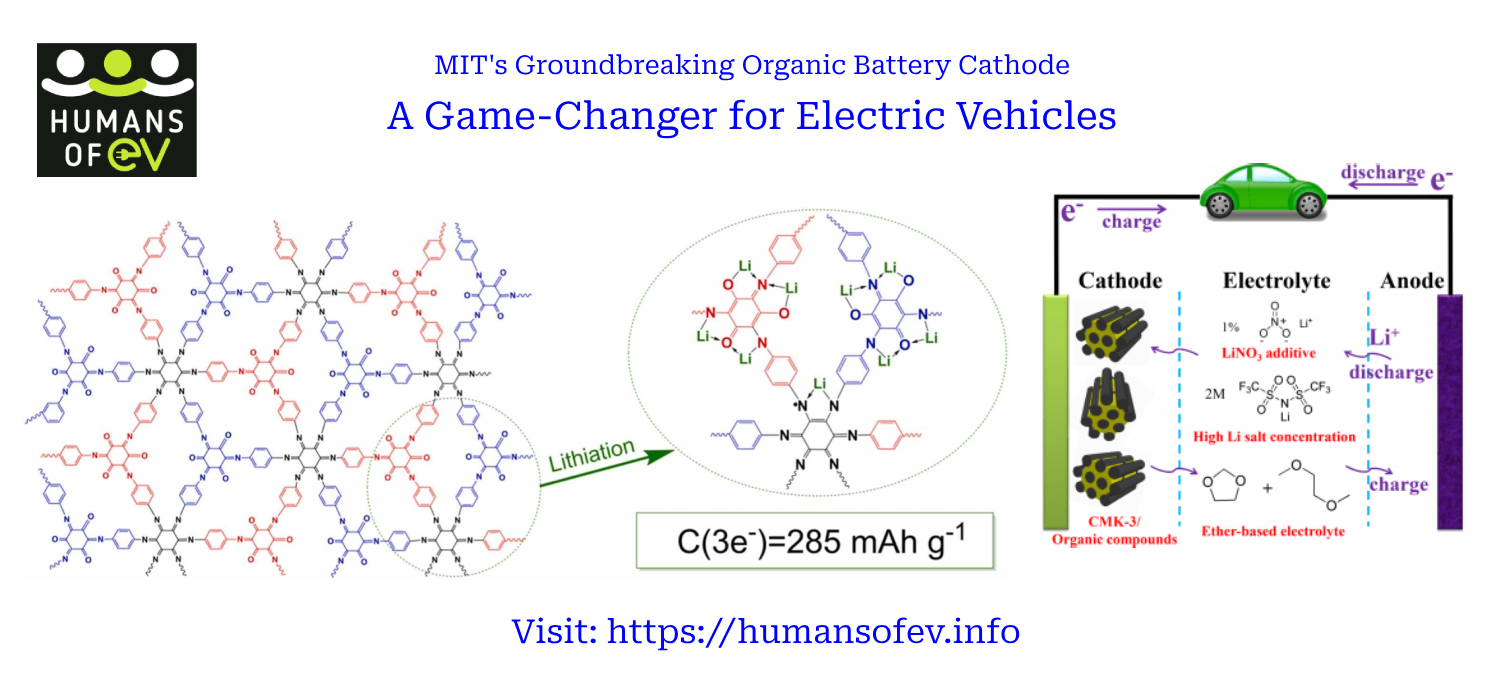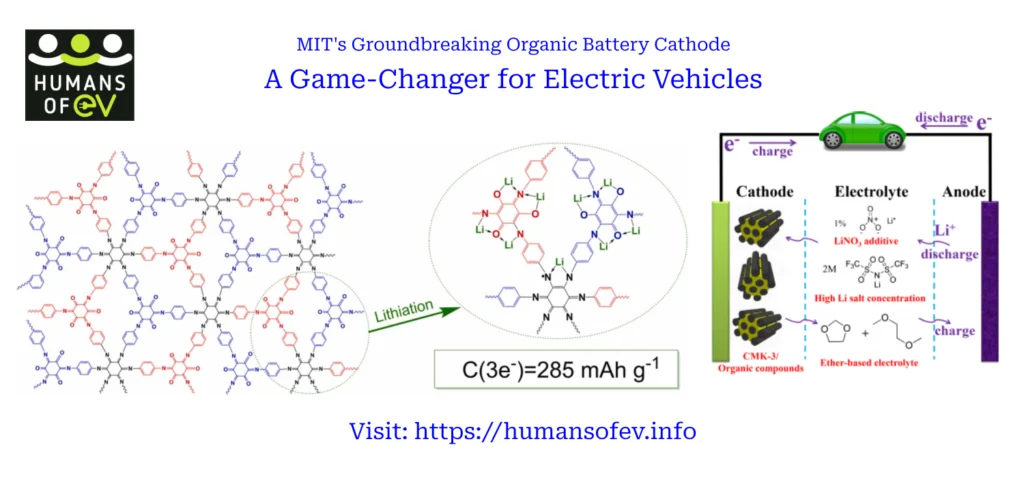
MIT's Groundbreaking Organic Battery Cathode: A Game-Changer for Electric Vehicles

Read More
-
Omega Seiki Mobility Showcases RAGE+ Tipper at Municipalika 2026
-
JSW Motors Signs MoU with Tata IIS to Train Workers for Chhatrapati Sambhajinagar EV Plant
-
Municipal Corporation Ludhiana Floats Tender for 50 EV Charging Stations to Strengthen Urban Charging Infrastructure
-
VinFast Launches ICE-to-EV Exchange Drive in India to Accelerate Electric Vehicle Adoption
-
Electric Miles Enters India to Power the Software Layer of PM eBus Sewa

In a significant development that could reshape the future of electric vehicles (EVs), researchers at the Massachusetts Institute of Technology (MIT) have created a lithium-ion battery cathode made from organic materials.
This innovative approach aims to reduce the EV industry’s reliance on scarce and environmentally damaging metals like cobalt and nickel.
The newly developed organic cathode, based on bis-tetraaminobenzoquinone (TAQ), demonstrates impressive performance metrics that rival traditional cobalt-based batteries. It boasts a storage capacity of 306 mAh/g and an energy density of 765 Wh/kg, allowing for rapid charging and discharging in as little as six minutes (MIT, 2023).
One of the key advantages of this organic cathode is its stability. Unlike conventional organic materials, the TAQ-based cathode is completely insoluble, preventing it from dissolving into the battery electrolyte. This property enables the battery to withstand over 2,000 charge cycles with minimal degradation, ensuring longevity and reliability (MIT, 2023).
Moreover, the production costs of these organic batteries are expected to be significantly lower than cobalt-containing alternatives, estimated to be one-third to one-half the cost (MIT, 2023). This cost-effectiveness, combined with the reduced environmental impact of avoiding cobalt mining, positions this technology as a promising solution for the future of electric mobility.
The development has already garnered attention from the automotive industry, with Lamborghini licensing the patent for further exploration and potential commercialization (MIT, 2023). This interest highlights the potential for widespread adoption and the transformative impact of MIT’s innovation on the EV market.
In conclusion, MIT’s groundbreaking research on organic battery cathodes represents a significant step towards a more sustainable and efficient future for electric vehicles. By addressing the challenges associated with traditional battery materials, this technology has the potential to accelerate the transition to zero-emission transportation and contribute to a greener, more environmentally conscious world.
Reference:
MIT. (2023). MIT chemists develop a battery cathode based on organic materials, which could reduce the EV industry’s reliance on scarce metals. Retrieved from https://news.mit.edu/2023/organic-battery-cathode-0417


